Home>diy>Building & Construction>How Many Hours A Day Do Construction Workers Work
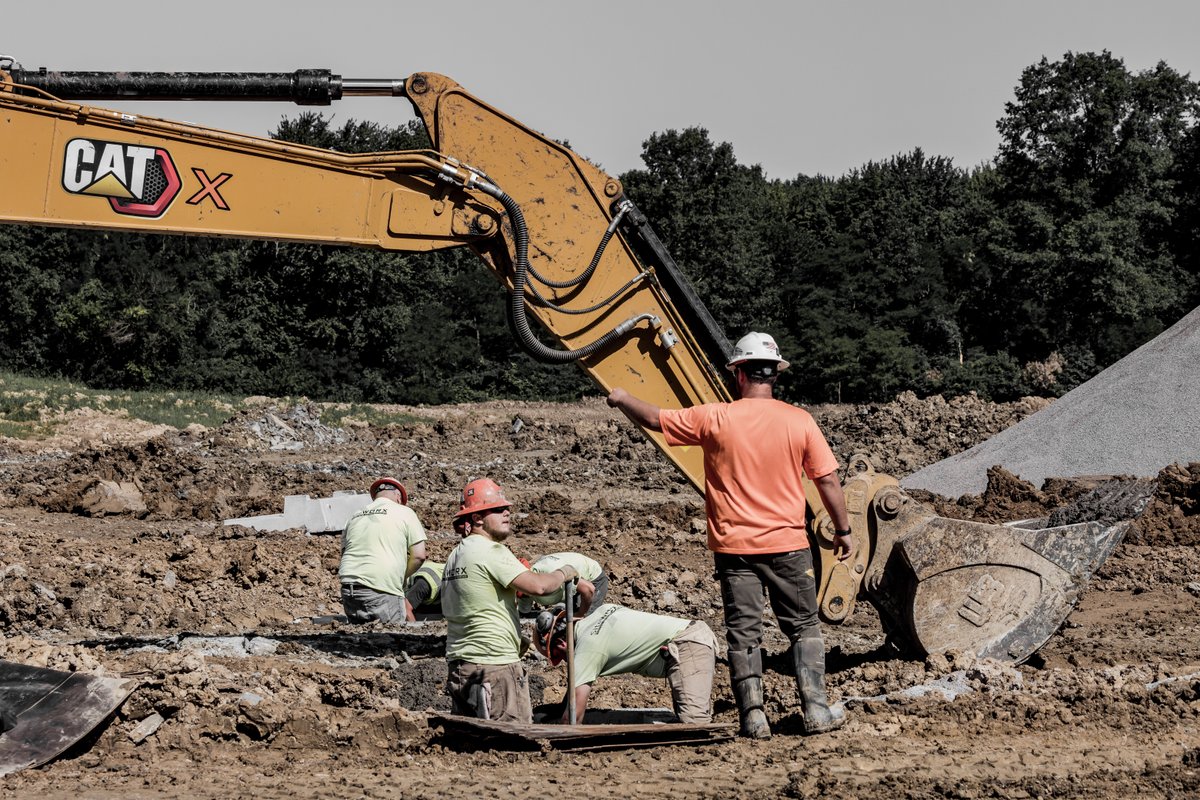

Building & Construction
How Many Hours A Day Do Construction Workers Work
Modified: March 6, 2024
Discover how many hours a day construction workers in the building construction industry typically work. Gain insights into the daily schedule of these hardworking professionals.
(Many of the links in this article redirect to a specific reviewed product. Your purchase of these products through affiliate links helps to generate commission for Storables.com, at no extra cost. Learn more)
Introduction
Construction workers play a crucial role in building the world we live in. From towering skyscrapers to intricate infrastructure projects, their hard work and dedication shape the landscape around us. One of the key aspects of their job is their working hours. Understanding the typical working hours of construction workers and the factors that influence them is essential for both employers and employees.
Working hours in the construction industry are regulated by labor laws to ensure the well-being and safety of workers. These regulations aim to strike a balance between productivity and the need for adequate rest and leisure time. It is important for both employers and workers to adhere to these regulations to maintain a healthy work-life balance.
In this article, we will explore the typical working hours of construction workers, factors that can influence their schedules, and the impact of overtime and shift work. We will also discuss health and safety concerns related to long working hours and share some strategies for managing and optimizing working hours.
By gaining insights into the working hours of construction workers, we can cultivate a better understanding of their commitment and dedication and ensure their well-being while they devote their skills and expertise to creating the structures we rely on.
Key Takeaways:
- Construction workers typically work 8-hour shifts, 5 days a week, but may work longer hours due to project deadlines and seasonal demands. It’s important for employers to prioritize worker well-being and safety.
- Overtime and shift work are common in construction, offering benefits but also posing challenges to worker health. Employers should implement strategies like clear communication, shift rotations, and work-life balance to ensure worker satisfaction and safety.
Working Hours Regulations
The working hours of construction workers are regulated by labor laws and regulations that vary from country to country. These regulations are designed to protect the rights and well-being of workers and promote fair working conditions.
One of the key regulations that govern working hours is the maximum number of hours an employee can work in a week. This is often referred to as the “maximum weekly working time” and is typically set at 40 to 48 hours, depending on the jurisdiction. This regulation prevents employers from excessively long working hours and ensures that workers have sufficient time for rest and personal commitments.
In addition to the maximum weekly working time, labor laws also outline regulations regarding daily rest periods and breaks. Workers are entitled to a certain number of hours of rest between working shifts or a minimum break period during their shift. These rest periods are crucial for maintaining worker safety and preventing fatigue-related accidents on construction sites.
Furthermore, labor laws often dictate the requirement for overtime compensation. If construction workers exceed their regular working hours, they are entitled to additional pay or time off as compensation for their extra effort. Overtime rates can vary depending on the jurisdiction and the specific work conditions.
By enforcing these regulations, lawmakers aim to ensure that construction workers are not exploited and are given fair and reasonable working hours. Adhering to these regulations not only safeguards the rights of workers but also promotes better productivity and job satisfaction.
Typical Working Hours of Construction Workers
The working hours of construction workers can vary widely depending on the specific project, company policies, and regional regulations. However, there are some general patterns and typical working hour ranges that can help paint a picture of what to expect in the construction industry.
Typically, construction workers work an eight-hour shift, five days a week. This translates to a 40-hour workweek. However, it is important to note that construction projects often have unique timelines and deadlines that may require workers to put in additional hours.
Some construction companies may adopt a different schedule, such as a four-day workweek with longer daily shifts. This allows for a three-day weekend, providing workers with a better work-life balance and the opportunity to recharge before the next work week begins.
Additionally, some construction projects may require workers to work irregular hours or be on-call during weekends or public holidays. This is often the case for projects that need to be completed within tight deadlines or for emergency repairs and maintenance work.
Moreover, seasonal factors can also influence the typical working hours of construction workers. In certain regions, construction projects might be more prevalent during certain seasons, such as the spring and summer months, due to conducive weather conditions. This can lead to longer working hours and increased demand for construction workers during those periods.
It is important to remember that these are just generalizations, and the actual working hours can vary depending on the specific project, employer policies, and regional regulations. It is always advisable for construction workers to refer to their employment contracts or consult with their employers to have a clear understanding of their expected working hours.
Factors Affecting Working Hours
Several factors can influence the working hours of construction workers. Understanding these factors is essential for both workers and employers to effectively manage schedules and ensure optimal productivity and work-life balance.
1. Project Deadlines: Construction projects often have strict deadlines that must be met. These deadlines can influence the working hours of construction workers, requiring them to work longer hours or overtime to complete the project on time.
2. Weather Conditions: Weather conditions can significantly impact construction projects. Inclement weather, such as heavy rain or extreme heat, can disrupt work and prolong the project timeline. In such cases, construction workers may need to work extended hours or make up for lost time.
3. Labor Availability: The availability of skilled labor can affect working hours. If there is a shortage of qualified workers, construction projects may require employees to work longer hours to compensate for the lack of manpower.
4. Contractual Obligations: The terms and conditions outlined in construction contracts can also impact working hours. For example, some contracts may specify penalties or bonus incentives based on the completion timeframe, which may require workers to work additional hours to meet the contractual obligations.
5. Union Agreements: In unionized construction sectors, collective bargaining agreements may dictate the working hours and conditions for workers. These agreements are negotiated between labor unions and employers and can impact the amount of time workers spend on the job.
6. Economic Factors: Economic factors, such as the demand for construction projects and the state of the industry, can influence working hours. During economic booms, when construction activity is high, workers may experience longer working hours to meet the increased demand.
7. Shift Work Requirements: Some construction projects require round-the-clock work, which may involve rotating shifts or night shifts. This is often the case for projects that need continuous progress or for infrastructure maintenance work that cannot disrupt daily operations.
By considering these factors, employers can proactively plan and manage working hours to ensure the well-being and productivity of construction workers. Additionally, understanding these factors helps workers anticipate potential challenges and negotiate for fair working conditions.
Construction workers typically work 8-10 hours a day, but this can vary depending on the project and the company. It’s important for workers to take regular breaks to prevent fatigue and stay safe on the job.
Overtime and Shift Work
Overtime and shift work are common practices in the construction industry. They often occur due to project demands, deadlines, and the need for continuous operations. Let’s explore the impact and considerations of overtime and shift work for construction workers.
Overtime: Construction projects may require workers to exceed the standard working hours, leading to overtime. Overtime compensation typically involves higher pay rates or time off in lieu of extra hours worked. This serves as an incentive for workers to put in additional effort and helps maintain their work-life balance.
While overtime can provide financial benefits, it is essential to manage it effectively to avoid burnout and fatigue. Excessive overtime can lead to decreased productivity, increased safety risks, and adverse effects on workers’ physical and mental well-being.
Shift Work: Some construction projects necessitate around-the-clock operations, requiring workers to engage in shift work. Shifts can be divided into morning, evening, and night shifts to ensure continuous progress and site security. Shift work allows for increased project efficiency and flexibility but also presents unique challenges for workers.
Shift work can disrupt the natural sleep-wake cycle and impact workers’ health and social life. It may also affect their ability to adjust to irregular schedules and adapt to changing shift patterns. Employers should implement strategies to minimize the negative impact of shift work, such as providing appropriate breaks, ensuring sufficient rest periods between shifts, and offering support for workers’ physical and mental well-being.
Overall, a thoughtful approach to managing overtime and shift work is crucial. Employers should prioritize ensuring adequate rest periods, monitoring employee fatigue levels, and providing support services, such as counseling and health programs. Construction workers should be diligent in reporting any concerns related to overtime or shift work to their supervisors or safety representatives.
By effectively managing overtime and shift work, employers can strike a balance between project demands and employee well-being, ultimately promoting job satisfaction, productivity, and a safe working environment.
Health and Safety Concerns
Construction work is physically demanding and often involves hazardous conditions. Long working hours and fatigue can exacerbate these risks, leading to potential health and safety concerns for construction workers. It is crucial for employers and workers to prioritize safety measures and address these concerns to ensure the well-being of everyone on the construction site.
1. Fatigue: Extended working hours, overtime, and shift work can contribute to fatigue, which can impair concentration, reaction time, and decision-making abilities. This increases the risk of accidents and injuries on construction sites. Employers should implement strategies to prevent and manage fatigue, such as providing regular rest breaks, promoting healthy sleep patterns, and scheduling adequate time off between shifts.
2. Physical Strain: Construction work often involves repetitive tasks, heavy lifting, and working in awkward positions. Prolonged or excessive working hours can lead to physical strain and musculoskeletal disorders. Employers should provide training on proper lifting techniques, ergonomics, and rotation of job tasks to minimize the risk of injuries.
3. Mental Well-being: Long working hours and demanding deadlines can take a toll on the mental well-being of construction workers. High levels of stress, anxiety, and burnout can impact productivity and increase the likelihood of accidents. Employers should prioritize mental health support services such as counseling, stress management programs, and promoting work-life balance.
4. Safety Hazards: Fatigue from excessive working hours can impair workers’ ability to maintain focus and notice potential safety hazards. This can lead to accidents and injuries on construction sites. Employers should ensure that proper safety protocols, training, and supervision are in place to mitigate risks and create a safe working environment.
5. Communication and Coordination: Long working hours and shift work can disrupt the communication and coordination between workers, supervisors, and other stakeholders. This can lead to misunderstandings, delays, and ineffective decision-making. Employers should establish clear communication channels, hold regular safety meetings, and promote team collaboration to enhance safety and efficiency.
It is the shared responsibility of employers, workers, and regulatory bodies to address these health and safety concerns. By prioritizing safety, implementing appropriate measures, and fostering a culture of safety, the construction industry can ensure the well-being of workers and create a safer working environment for all involved.
Strategies for Managing Working Hours
Managing working hours effectively is crucial for maintaining the well-being, productivity, and work-life balance of construction workers. Here are some strategies that employers and workers can implement to better manage working hours in the construction industry:
1. Clear Communication: Open and transparent communication between employers, supervisors, and workers is essential for managing working hours. Regularly communicate project schedules, deadlines, and any changes that may impact working hours. Encourage workers to voice their concerns and provide input on scheduling decisions.
2. Planning and Scheduling: Develop comprehensive project plans and schedules that consider realistic timelines and allocate sufficient time for tasks. Avoid overloading workers with excessive workloads that can lead to extended working hours. Utilize project management tools and software to streamline scheduling and monitor progress.
3. Flexibility and Adjustments: Recognize that unexpected circumstances may arise during construction projects that require adjustments to working hours. Maintain a level of flexibility to accommodate these situations while still ensuring that workers have adequate rest and recovery time.
4. Implement Shift Rotation: Shift work can be an effective way to manage construction projects that require continuous operations. Implement a structured shift rotation system to distribute workload and balance the working hours among the workforce. Ensure that workers have sufficient rest periods between shifts.
5. Prioritize Work-Life Balance: Encourage a healthy work-life balance by promoting the importance of personal time, rest, and leisure activities. Encourage workers to take regular breaks to recharge and rejuvenate. Foster a supportive work environment that values work-life balance and discourages long work hours unnecessarily.
6. Employee Assistance Programs: Establish employee assistance programs that offer support services such as counseling, stress management resources, and assistance with personal issues. These programs can help workers cope with the demands of the construction industry and maintain their well-being.
7. Ongoing Training and Development: Provide training on time management, productivity enhancements, and stress management techniques. Equip workers with the tools and skills needed to effectively manage their tasks and workloads within reasonable working hours.
8. Regular Evaluations: Regularly evaluate and assess the effectiveness of working hour management strategies. Seek feedback from workers to identify areas for improvement and implement necessary adjustments to ensure better work hour management.
By implementing these strategies, employers and workers in the construction industry can promote a healthy work environment, minimize stress and fatigue, and enhance productivity. Balancing the demands of construction projects with the well-being of workers is crucial for long-term success and sustainability in the industry.
Conclusion
The working hours of construction workers play a significant role in shaping their well-being, productivity, and work-life balance. It is essential for both employers and workers to understand and manage working hours effectively to ensure the success of construction projects and the overall satisfaction of the workforce.
By adhering to working hour regulations, employers can establish fair and safe working conditions for their construction workers. These regulations set standards for maximum weekly working time, rest periods, and overtime compensation, aiming to strike a balance between productivity and worker well-being.
The typical working hours of construction workers often involve eight-hour shifts, five days a week, though variations can occur based on project demands and regional regulations. Factors such as project deadlines, labor availability, and contractual obligations can influence working hours, requiring workers to adapt to irregular schedules and sometimes work overtime or engage in shift work.
Overtime and shift work can offer benefits but also pose challenges to the physical and mental well-being of construction workers. Fatigue, physical strain, and safety hazards are critical concerns that employers must address through proper rest breaks, training on safety protocols, and mental health support services.
Strategies for managing working hours include clear communication, effective planning and scheduling, shift rotations, prioritizing work-life balance, employee assistance programs, ongoing training and development, and regular evaluations. Implementing these strategies helps maintain worker satisfaction, productivity, and promote a healthier work environment.
In conclusion, the construction industry relies on the dedication and expertise of its workers. By understanding and effectively managing working hours, employers can create a work environment that prioritizes the physical and mental well-being of construction workers, ultimately leading to safer and more successful construction projects.
Frequently Asked Questions about How Many Hours A Day Do Construction Workers Work
Was this page helpful?
At Storables.com, we guarantee accurate and reliable information. Our content, validated by Expert Board Contributors, is crafted following stringent Editorial Policies. We're committed to providing you with well-researched, expert-backed insights for all your informational needs.
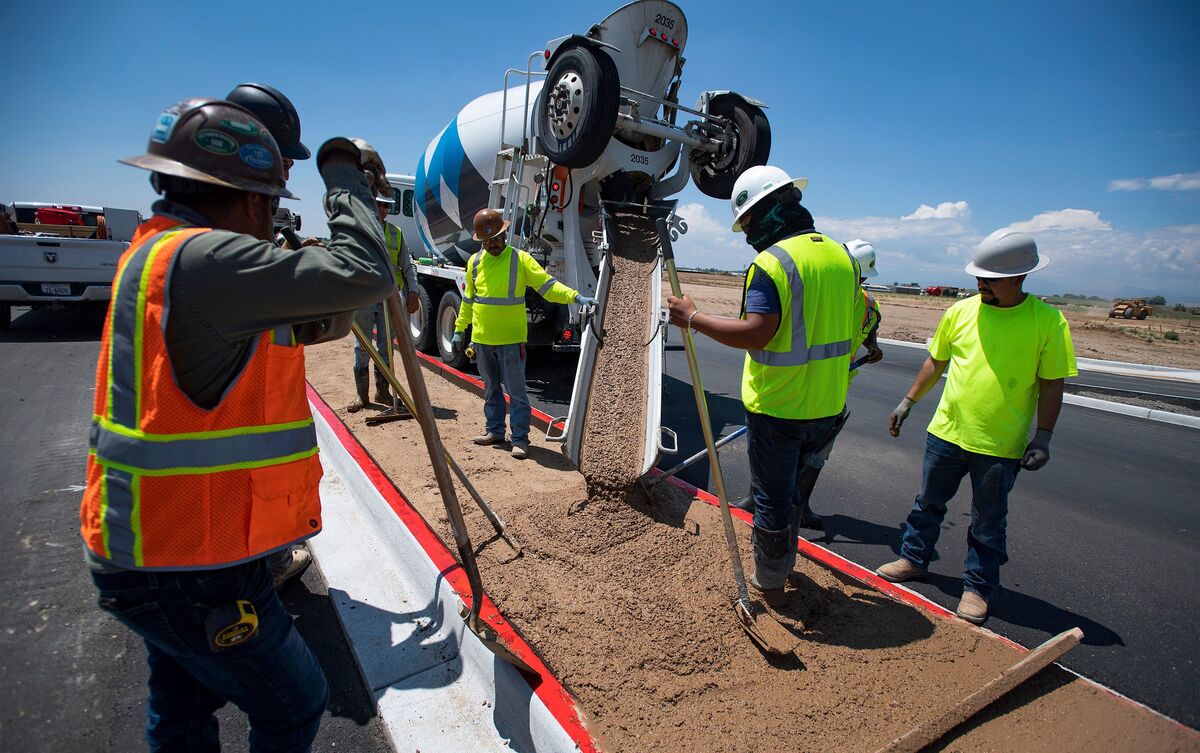




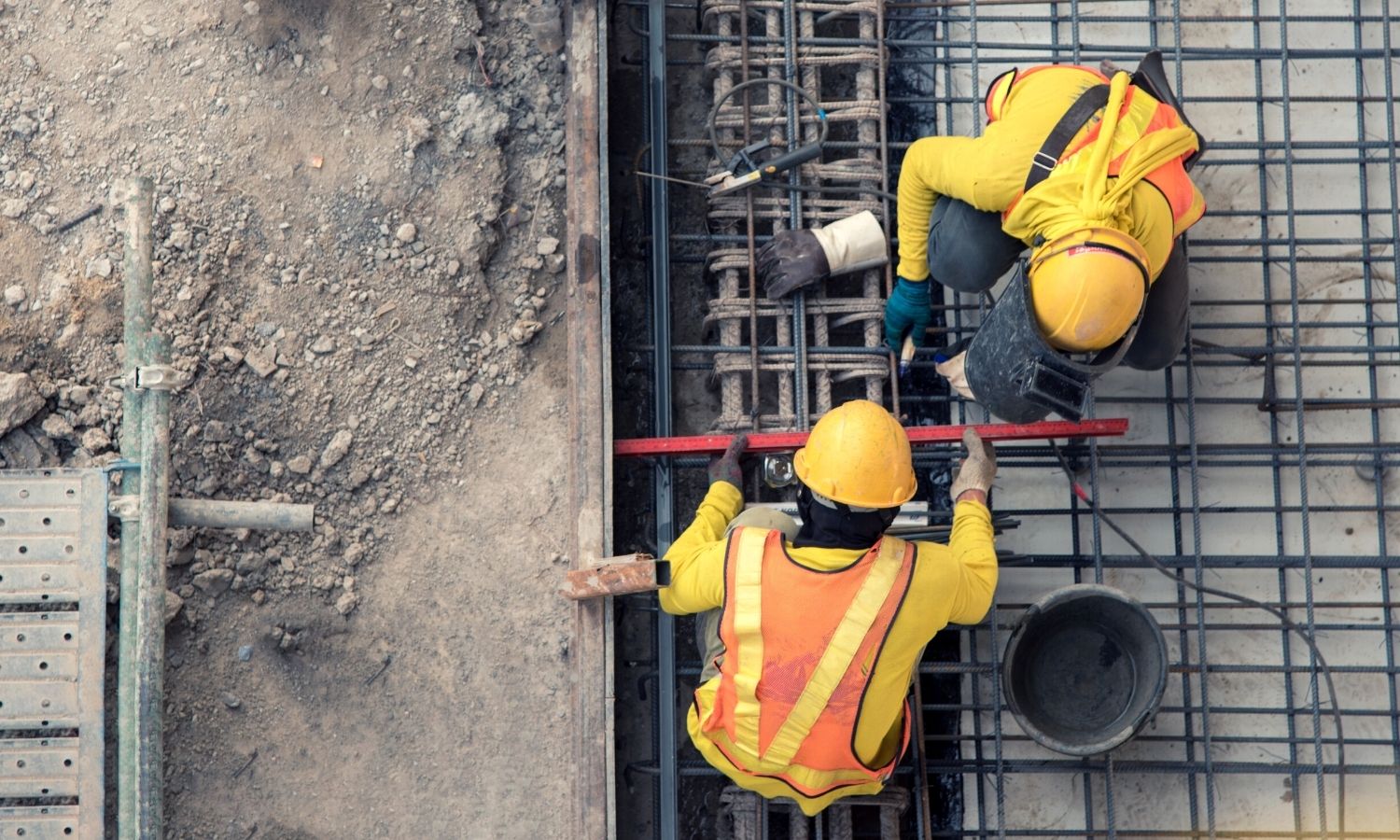

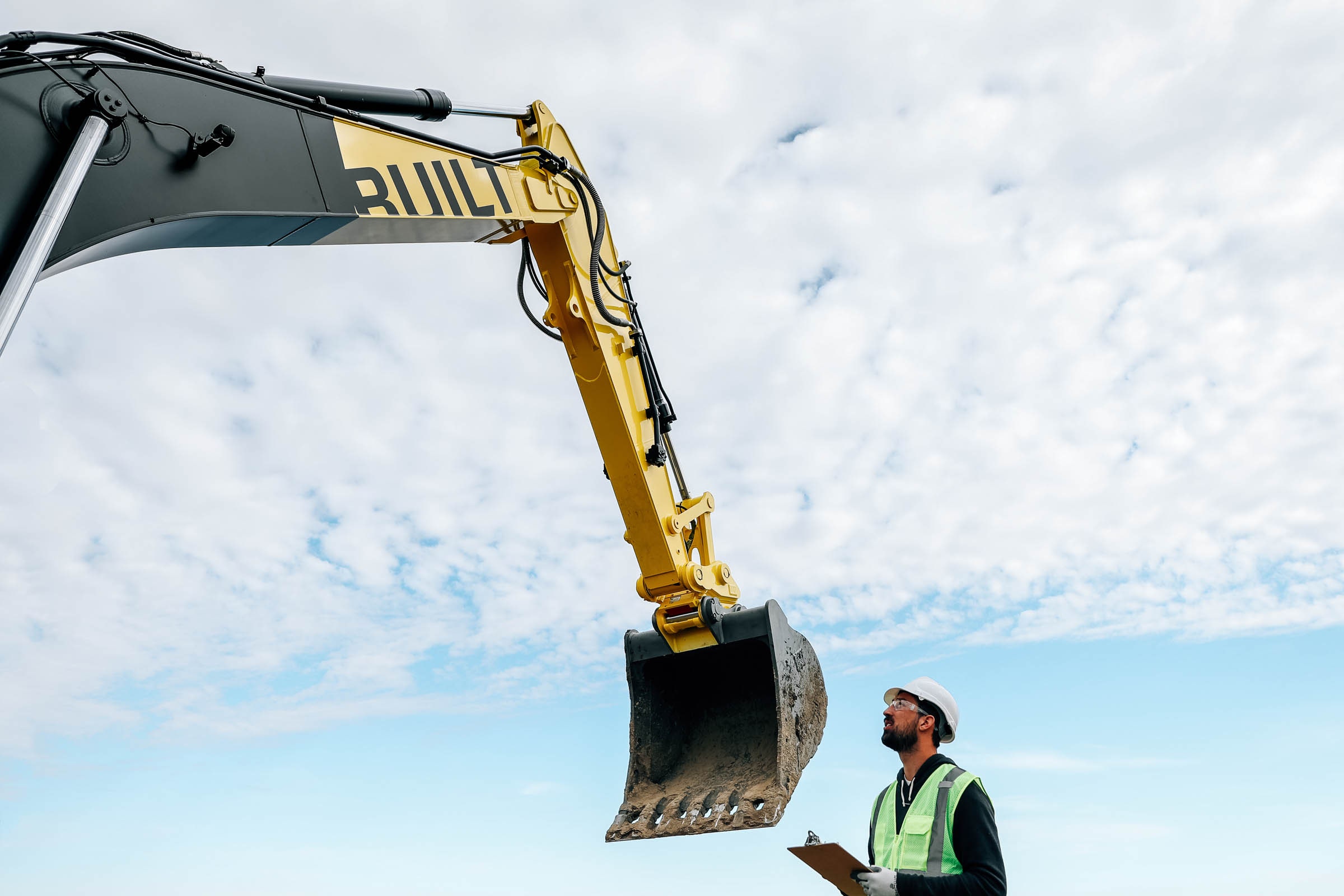


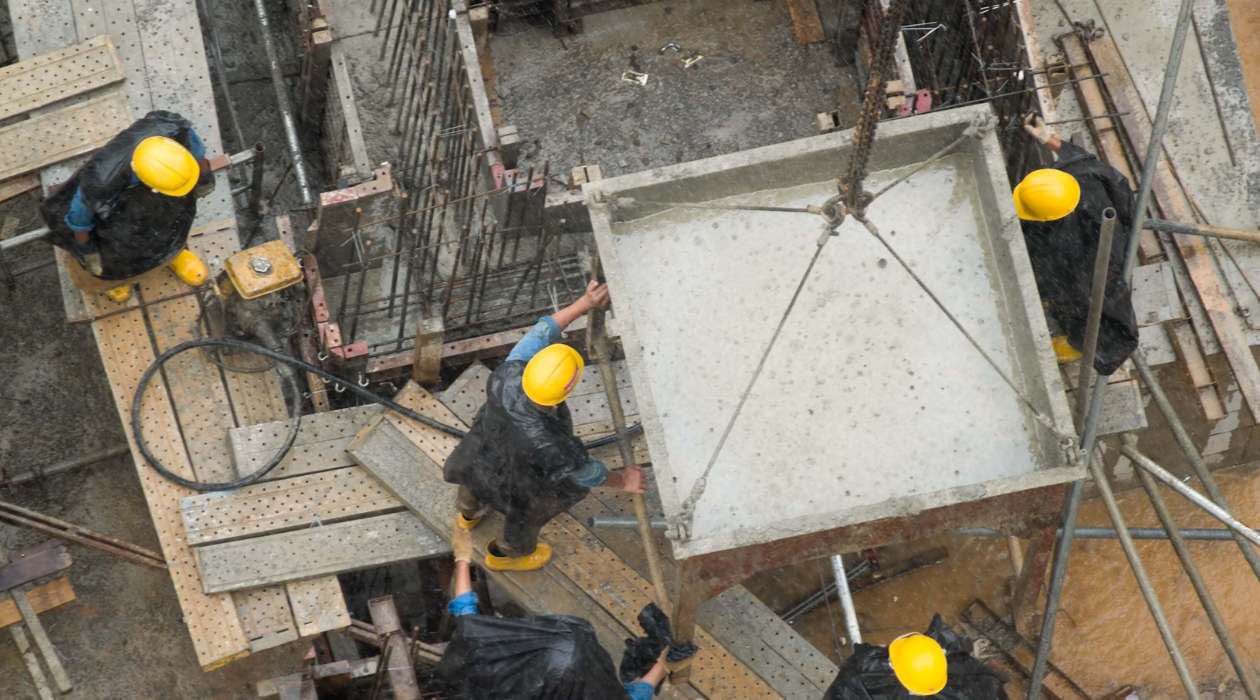




0 thoughts on “How Many Hours A Day Do Construction Workers Work”